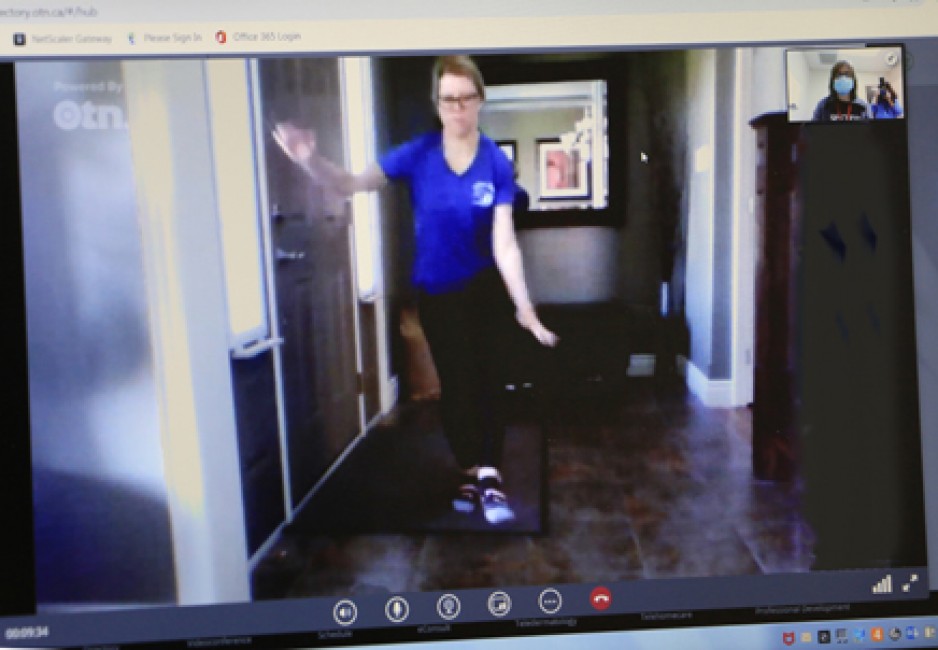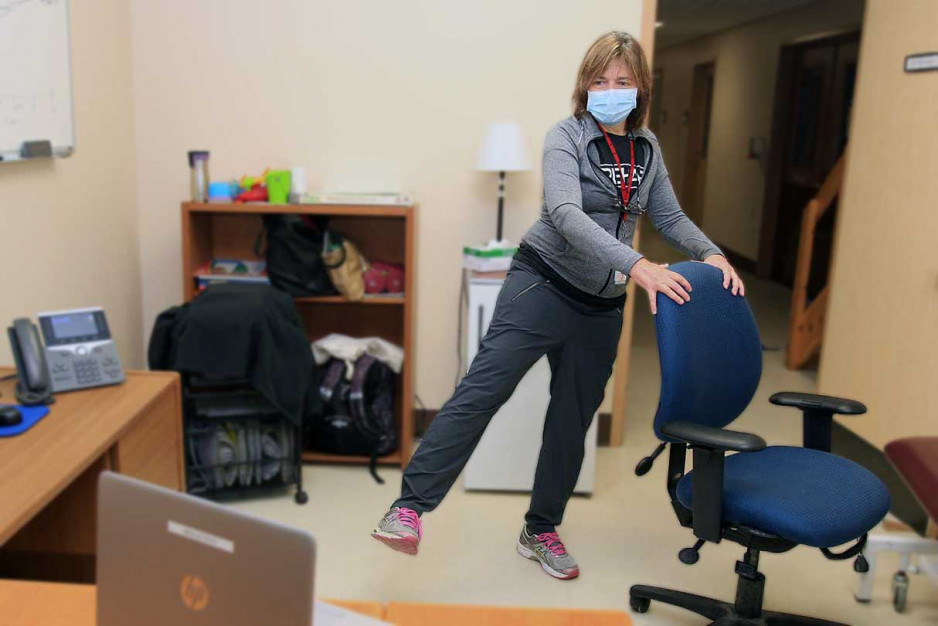A move in the right direction
At just 39-years-old, Beth Miller experienced a hemorrhagic stroke in early January – losing significant mobility in the right-side of her body. A devastating reality for a natural athlete and mother of three.
After spending three weeks as an inpatient at St. Joseph’s Parkwood Institute, Beth was discharged home and began receiving care through St. Joseph’s Comprehensive Outpatient Rehabilitation Program. A hemorrhagic stroke is bleeding (hemorrhage) that suddenly interferes with the brain's function.
“I couldn’t use my right-hand to write,” says Beth of her condition when entering the inpatient program at Parkwood Institute. “I was unable to walk because of my inability to move my foot and muscle weakness in my entire leg.”
After receiving just one in-person visit with St. Joseph’s physiotherapist Darlene Vandesompele, the COVID-19 pandemic put a temporary hold on her future visits. “I remember not knowing what to do next,” says Beth.
It was then that Darlene, who has worked for St. Joseph’s for 33 years, reached out to Beth about the option of continuing her care virtually.
Within St. Joseph’s stroke outpatient rehabilitation programs, virtual care through the use of the Ontario Telemedicine Network— a province-wide network for virtual care - has been instrumental in continuing care for some patients during this unprecedented time.
“It was a great feeling to be supported and have check-ins about my care,” says Beth. “During a time of isolation, I was not isolated from my physiotherapy.”
Over the course of several weeks, Darlene would work with Beth over video conferencing software – providing detailed exercises, videos and demonstrations to help her gain her strength and use of the right-side of her body.
Physiotherapists focus on restoring physical function for patients following a stroke, which enables patients to relearn some of their lost abilities and regain independence.
“For many patients after a stroke, just coming into the hospital can be extremely exhausting,” says Darlene. “While virtual care is not a fit for every patient or condition, I was able to demonstrate exercises and movements with Beth and watch her progress.”
Well on her way to recovery, Beth is thankful for the continued care she has received.
“I just can’t say enough good things about them,” says Beth. “Darlene and the entire stroke team at Parkwood Institute kept me going during a very difficult time. I don’t feel that the virtual care I received held my recovery back – it only propelled me forward.”

